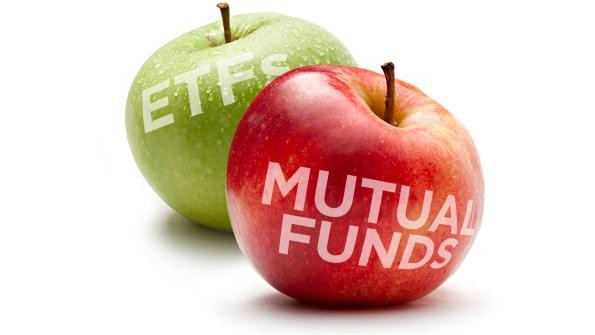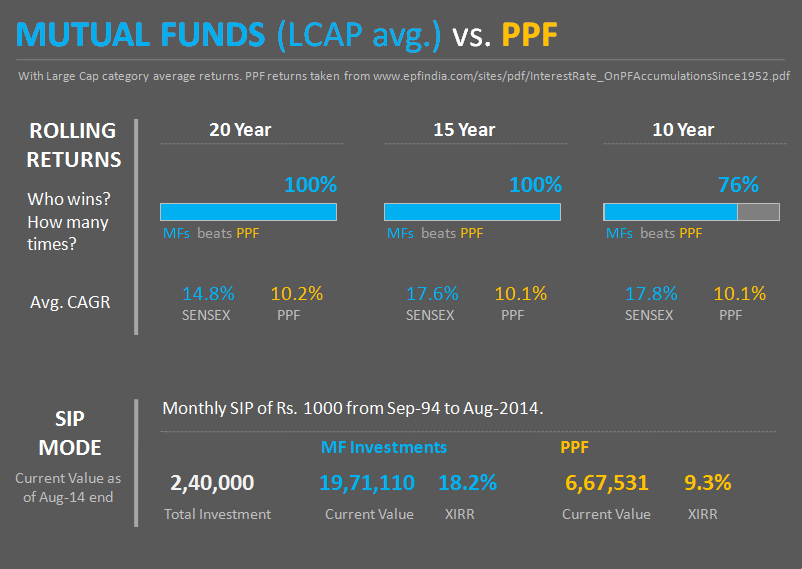The Case for Mutual Funds
Post on: 5 Июль, 2015 No Comment

By Motley Fool Staff | More Articles
For years, we’ve pointed out that the majority of funds underperform the market. But not all of them do — and if you can find the ones that have tried-and-true ways to beat the market, you’ll do better in the long run.
Point taken
As it turns out, quite a few funds have managed to beat the S&P 500 over time. If you crunch the numbers at any given time, you’ll typically find hundreds of funds beating the index even over long time horizons. What’s more, that list includes funds from all over the style and market-cap spectrums, which indicates to us that they’re headed by talented stock pickers, not folks who just happened to find themselves in the right place at the right time.
So how do you find those winners in advance? Here’s a hint: You have to start by looking beyond past performance.
Fund facts
The reason why is that past performance is only so useful when it comes to gauging a fund’s future prospects. We believe that you’re more likely to find tomorrow’s winners if you bring a comprehensive set of principles to bear on the universe of mutual funds and see which ones pass muster.
Performance is one screen we use, but we also focus on fees, volatility, tax efficiency, managerial tenure, strategy, and consistency with stated objectives. Fancy-schmancy analytical types might call it a mosaic approach. We prefer to say that we ask a consistent set of questions and then use the answers to separate the champs from the duds.
Far beyond the revelation that finding funds that can beat the market is more doable than you might have imagined, the case for mutual funds goes on. For starters, well-chosen funds can provide quick and easy exposure to the market’s various sectors and industries, lending your portfolio the kind of diversification that can help insulate you from volatility during turbulent times. No single piece of bad corporate news is likely to sink your fund, as it might an individual stock.
And that’s true even if the bad news involves the fund families themselves. Even those who owned funds implicated in the trading-abuse schemes from the early 2000s had little reason to dump their shares the moment that sorry news broke. Because the value of funds is a function of their underlying holdings, those unfortunate shareholders had ample time to weigh the tax implications of selling and determine where they’d park their money next.
Funds also provide you easy access to relatively esoteric asset classes. When, for instance, was the last time you bought a convertible or high-yield bond? How ’bout stocks from the emerging markets of Russia, Brazil, or South Korea? Securities like these can play a role in many an investor’s portfolio, and mutual funds make it easy to increase your exposure to them.

Last but not least, there’s cost. Unlike with stocks, you don’t have to pay a broker a commission each time you buy shares of mutual funds. And though that much-maligned typical fund sports an expense ratio of around 1.5%, some of our favorite funds cost less than 1% per year.
Choosy investors choose champs
Not for nothing, in other words, are mutual funds the investment vehicle of choice for so many of us. They’re convenient, cost-effective, and a lot less risky than individual stocks. And for folks who have things to do other than check their stocks every five minutes, mutual funds provide a peace-of-mind alternative (or supplement). Indeed, for serious long-term investors, we’d argue that mutual funds are just about the perfect investment vehicle.
The point is — and this is where many passive investors go astray — what fund you buy matters, and it matters a lot. The essence of Foolishness has always been that investors willing to do their homework can whip up on the Gucci-loafered Wise with one hand tied behind their checkbooks. Picking the right fund is every bit as important as picking the right stock, if not more so.
How so? For one thing, much as we all like to regard ourselves as buy-and-holders, when it comes to individual stocks, too many of us fail that test. With funds, at least, we tend to be better behaved. We tend not only to buy and hold, but also to keep investing new money in our funds in good markets and bad.
Good for us — assuming we’ve picked right to begin with, of course. So let’s take a closer look at some of the factors we use to find the best funds .














